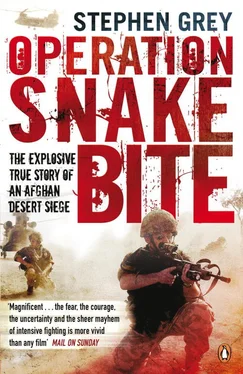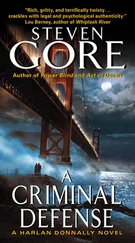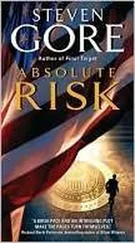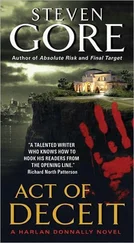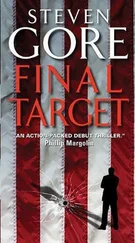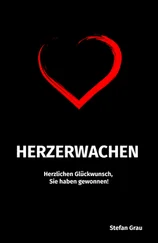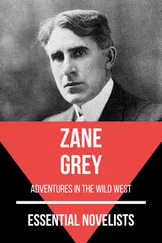The military explained there were few options available. The cycle of the moon meant that light levels were fading for operations at night. The whole operation was also geared to Afghan politics and timed to exploit something as variable as moonlight – the support of the Afghan president. Moreover, in practical terms, the helicopter assault might not have happened, but the operation was already under way.
Houghton was asked to check back with theatre and see if there could be any slippage, but few expected anything to change. Could Gordon Brown really phone up Karzai and call his visit off, saying, ‘Look, this operation is not looking good for me or my visit’?
And then someone raised the media coverage. Two journalists – myself, with the Sunday Times , and Rupert Hamer of the Sunday Mirror – were already embedded with the troops, it was revealed. (We had just arrived at Camp Bastion from Kandahar but were told it was uncertain when we would move forward due to ‘decisions’ being made elsewhere.)
‘Why have we got two embedded journalists? Who are they? Will they be objective?’ asked a Cabinet Office official.
There was a suggestion it might be better not to let us go forward with the troops, but instead report from the desert base at Camp Bastion.
But Houghton was insistent that it was too late to intervene. The journalists were already there.
He pointed out that if you wanted poisonous coverage, or at least articles infected by a certain bitterness, there was nothing worse than holding journalists back. And at Camp Bastion all we would get to report on was the wounded or dead casualties coming back in helicopters.
The desert west of Musa Qala, with the Brigade Reconnaissance Force, last light
At a new camp site in the desert, Major Tony Phillips zipped up his bivvy bag and, under the light of his red head torch, pulled out the diary that he wrote out each night. A little earlier, Phillips had gathered his men round and told them the news he had just received from Camp Bastion. Jack Sadler was dead. And, as he recounted the events of the day over two full A4 pages in the notebook, Phillips tried to recall his brief time of knowing Sadler.
How cruel was the death of someone so keen, so elated to be living his dream. Jack loved the military. He had just finished a war studies degree at King’s College, London, and talked about applying to Sandhurst to become an officer. He was a walking encyclopedia on military history and had entertained the lads with comparisons between the BRF’s desert manoeuvres and General Montgomery’s tactics in the Western Desert in the Second World War.
But something was missing from the BRF now, Phillips realized, and it wasn’t just Jack Sadler. They had had their suicide bomb in Gereshk and all had survived. They had been driving in these unarmoured WMIKs all over the mine-strewn desert at top speed and had never been struck. They did that with confidence because, somehow, they could tell themselves it wouldn’t happen to them. ‘It was like we were invincible,’ Wylie, the driver in Sadler’s vehicle, would recall. But now that bubble was burst. Every bump in the track was a potential explosive. Maybe it was just because they were so awfully tired after all those days of sleeping rough. But fear had crept into the BRF, and Phillips knew he would have to dig deep and fight it hard.
As a commander he too had his doubts, even if for now he could share them only with his diary. He believed in God. But, as he asked himself that night, where was He now?
The whole thing is surreal. We have just endured what few will ever have to experience in their lives (thank God!) but are carrying on as if nothing has happened. We boiled our rations and brewed up just like we did last night. We mounted sentries and held a ‘bonnet brief’ just like we did last night and we are now bivvied up just like last night; yet deep down it’s all gone hollow. We know that tomorrow, or the day after, or perhaps the day after that may be worse. The soldiers have performed magnificently as usual. As ever, there are questions we all ask ourselves. Should I have done something else? If so, would it have made a difference? It’s horrible; for weeks we have beaten the Taliban and now they get one of us like this.
Jack Sadler need not have been here yet he volunteered. What a brave young man. Very bright, he had fitted in well. We rarely had much opportunity to sit and chat – life was simply too fast. I wish we had. I knew today would be testing so I prayed a lot for me and my men. Yet this happened. After Gereshk I really thought that I was protected and that my men would be as well. I can never fathom out where I stand with God. It surely cannot be right that the Muslim extremists who did this have got away?
Lord, please give me wisdom, strength, courage and happiness and carry the Sadler family through the coming days.
The desert west of Musa Qala wadi, 5 December, 07.40
The ‘Greyhound’ buses came out of the desert, carrying the militia that was supposed to be going to protect Mullah Salaam. They were escorted by some Czech special forcesWaiting for them was Lieutenant David Warwick, a young officer from the King’s Royal Hussars.
The men who poured out the buses looked nothing like fighters: ranging from teenagers to men in their sixties, they looked just like ordinary Afghans, dressed in thick woollen smocks. The militia were angry, hungry and thirsty. They’d been sitting in the buses with no food or water all the way from Lashkar Gah, they said.
In charge of the militia was a man called Nick Muhammad, selected apparently for the mission by the presidential palace. Back in Kabul, Michael Semple had been asked for a briefing on him. Muhammad was ‘just some minor thug who was running a police checkpost on the main road, and the only reason to run checkposts on the main road is to steal from people,’ he recalled. He told those who asked about him: ‘If we need a job for a nightclub bouncer and it’s not a salubrious place, then Nick Muhammad’s your man.’ But as far as the British soldiers had been told, all of these men were former Taliban and dangerous.
‘They started shouting, getting angry, and refused to move on with us,’ said Warwick. The Czechs started to edge away, but Warwick made them stay for now.
Then Muhammad’s men started getting hold of their weapons. ‘They disappeared off, lifted up the storage containers on the side of these buses and started getting out AK-47s and magazines and ammunition and loading up these magazines and loading their weapons and making them ready.’ Things were soon getting out of hand. At first the KRH had their Mastiffs in a circle, with their guns trained outwards for all-round defence. But they soon had some of their guns pointing inwards.
‘We’d been told these guys used to fight for the Taliban, that they’d been fighting against British soldiers only nine or ten months back. This was all pretty threatening. And they were waving their weapons around in my face and the interpreters’ faces. One of the interpreters started crying.’
Warwick managed to persuade Muhammad to get the guns lowered, and soon Colonel Ed arrived to help. They persuaded the militia to accept some biscuits and water and to get back in the buses. They were told they could keep their weapons, but they agreed to unload them.
The next trouble was to get them down and across the Musa Qala wadi along a track that only an off-road vehicle could make. They got transferred into the Mastiffs – not something that made their crews comfortable. The plan was to take them up to Mullah Salaam’s compound and unload them, but when they reached the outskirts of Shah Kariz, there was no one there to meet them.
Читать дальше
